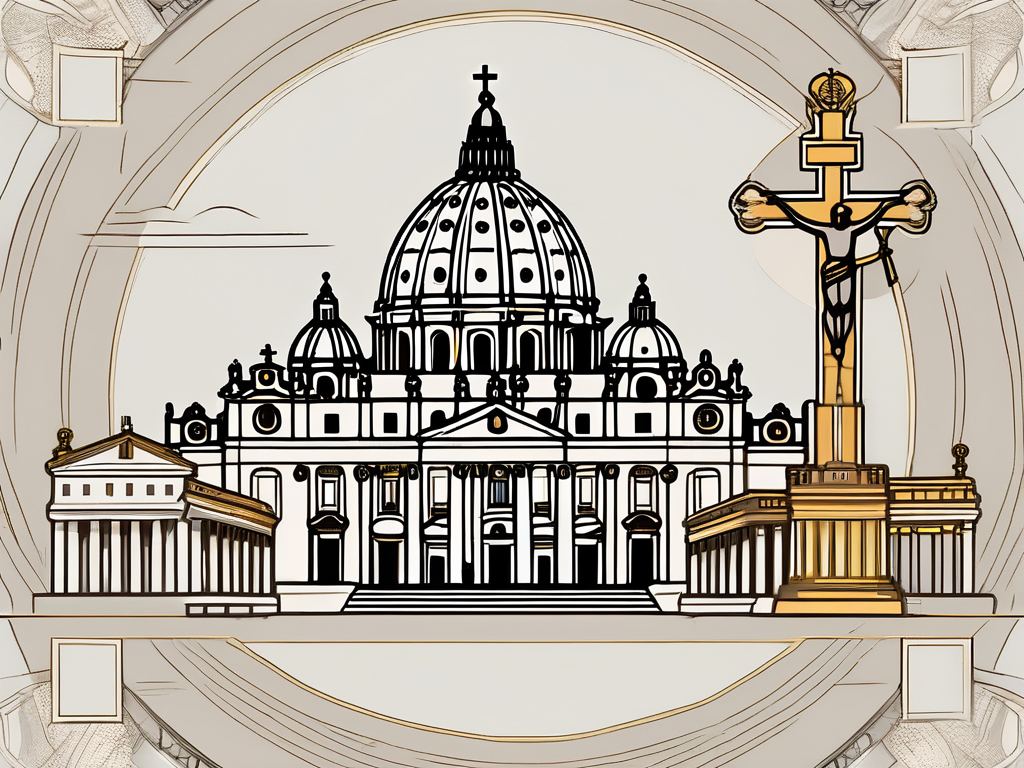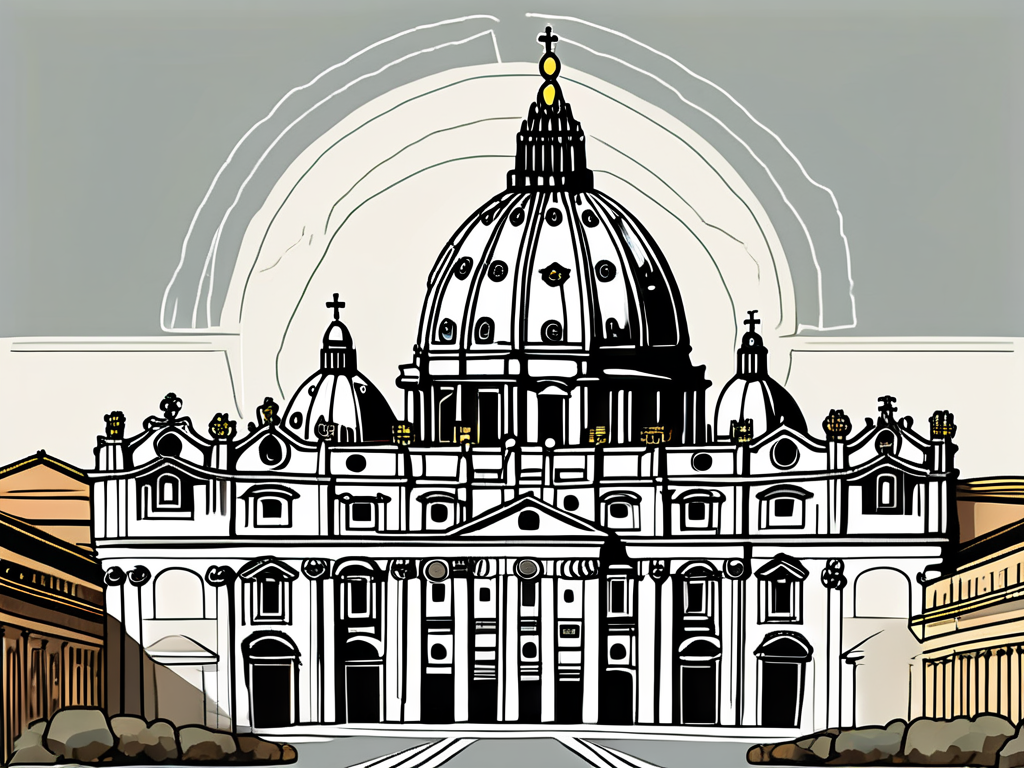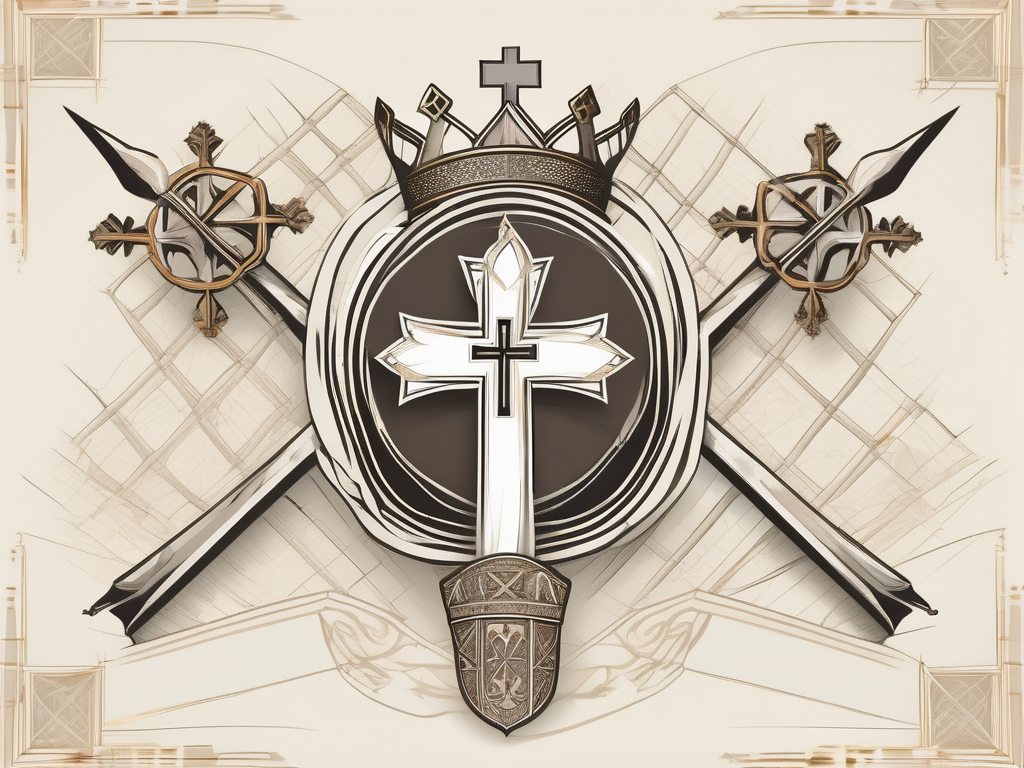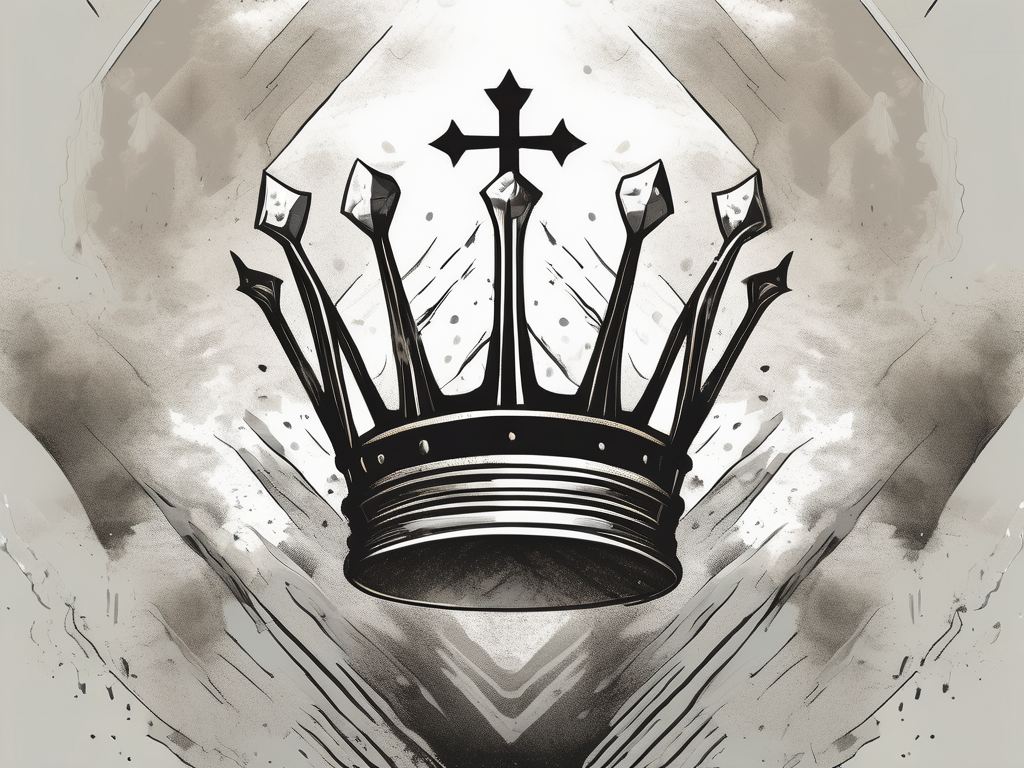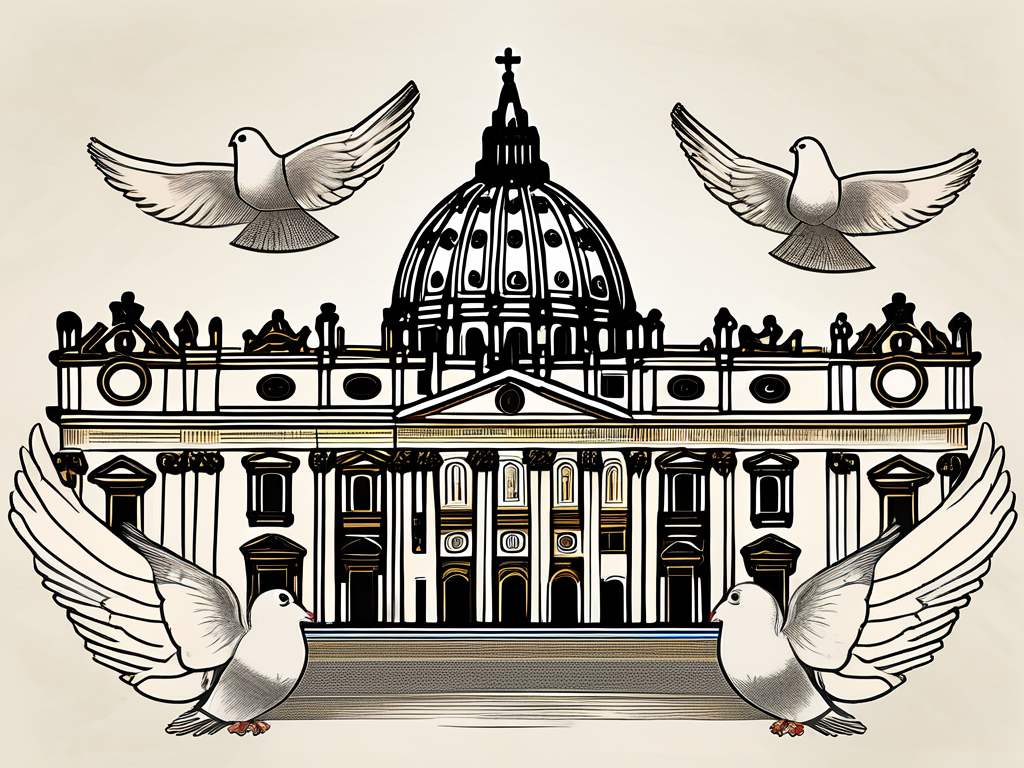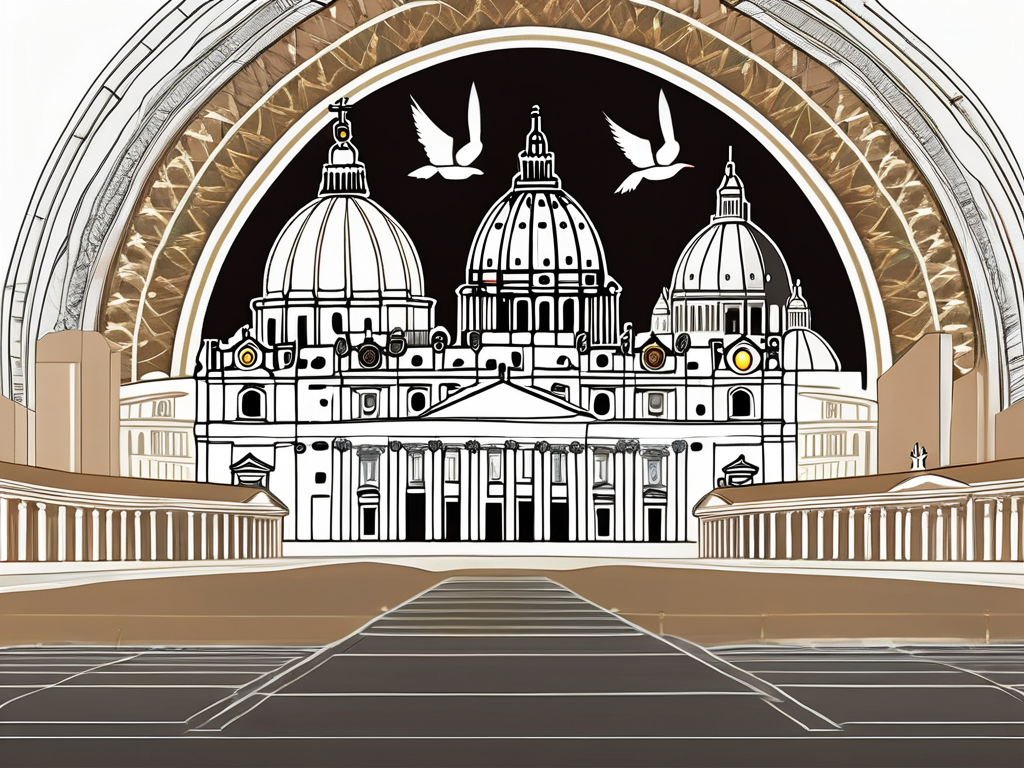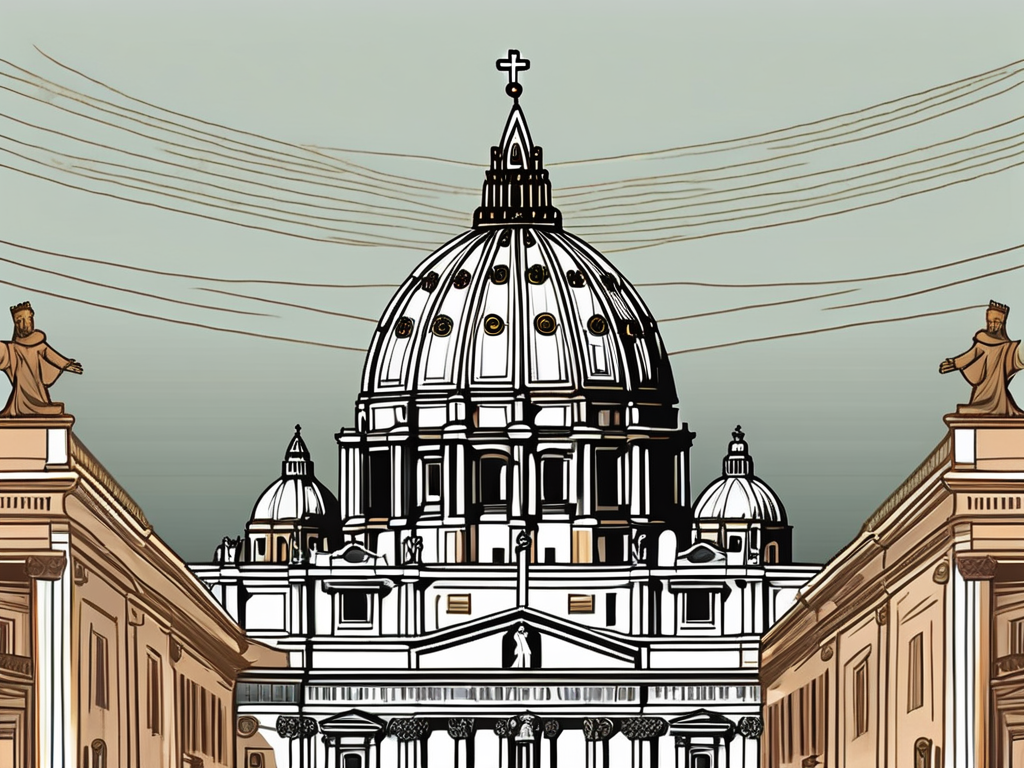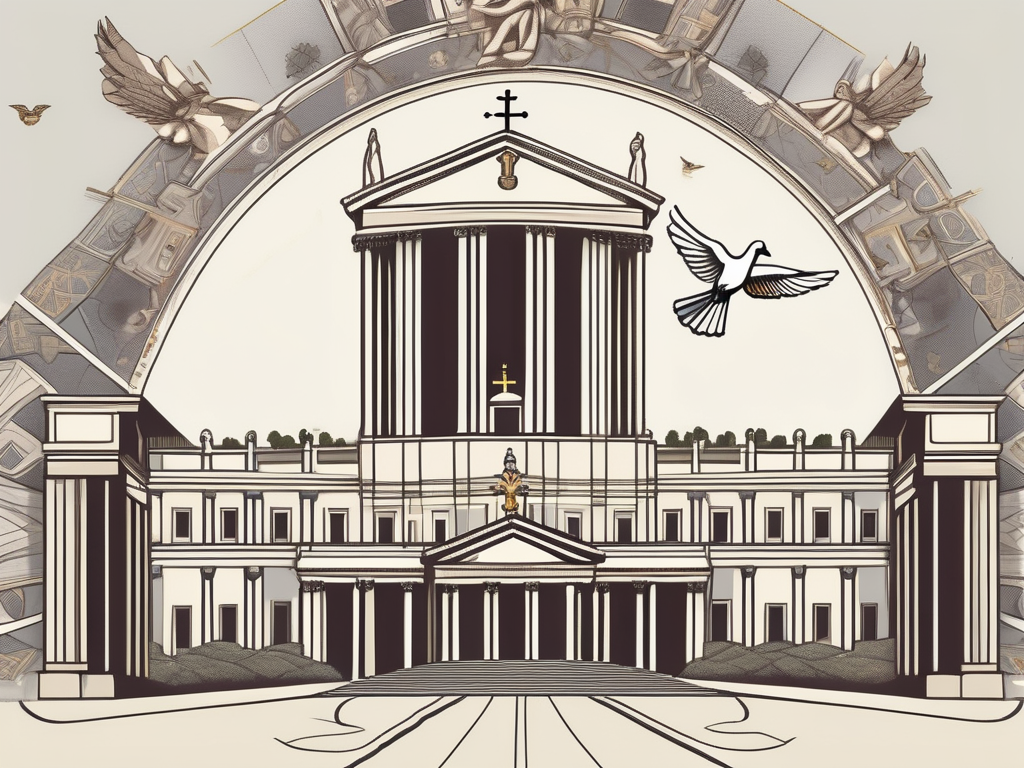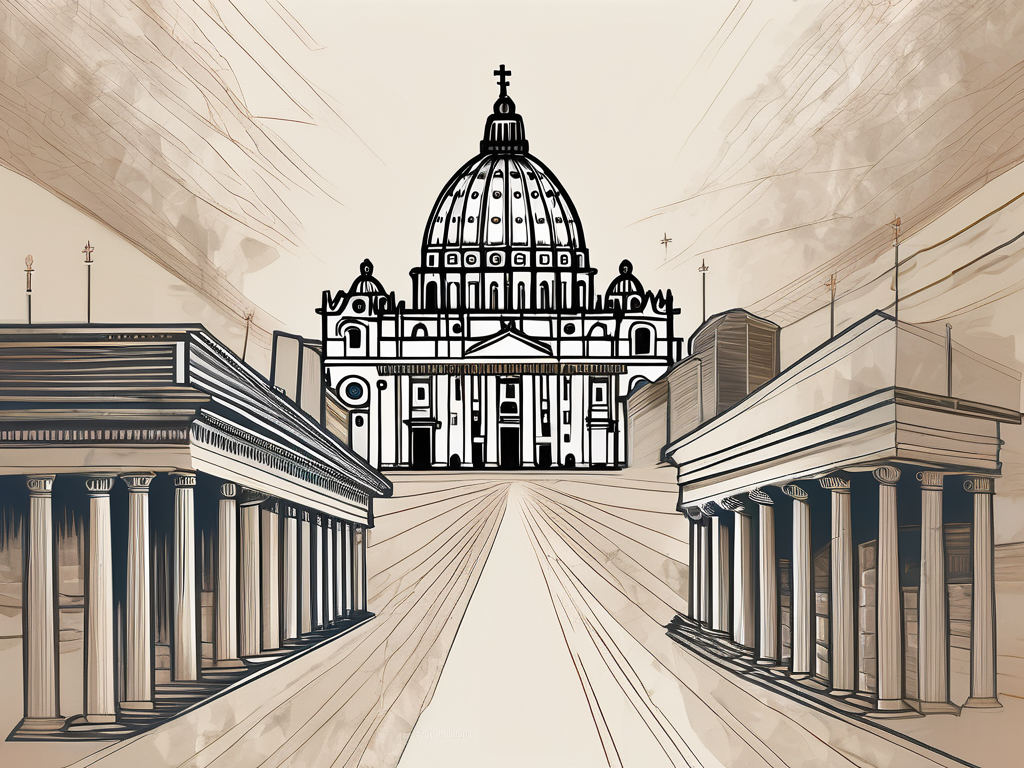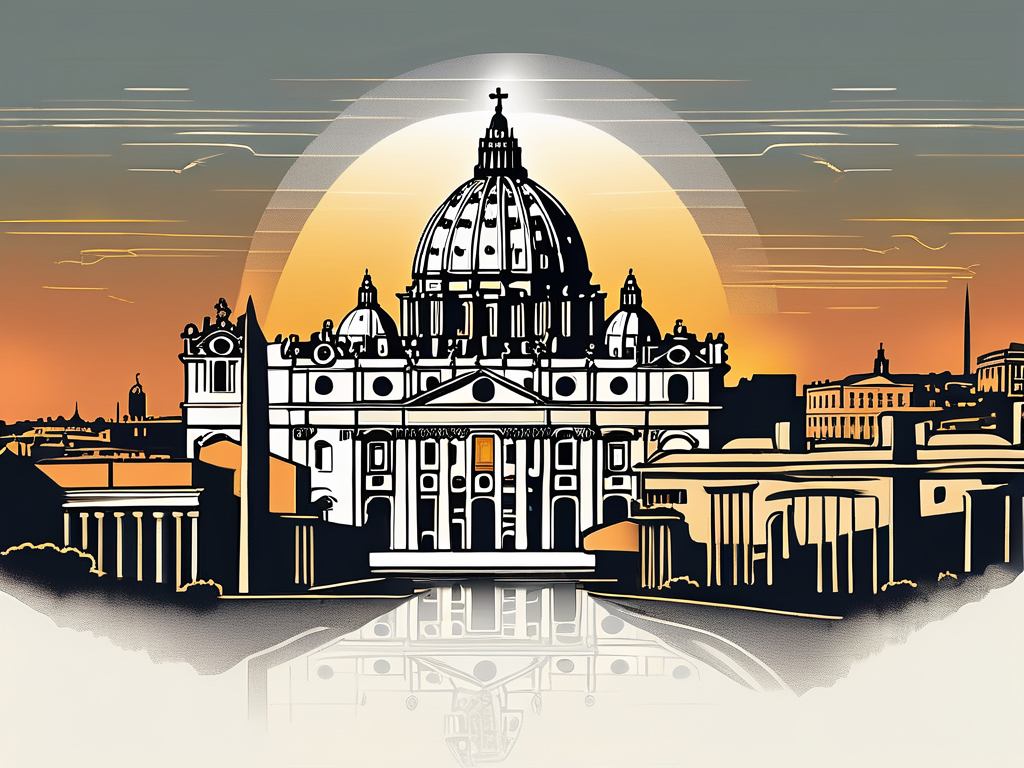Pope Alexander II, born Anselmo da Baggio, was an influential figure in the history of the Catholic Church. From his early life and education to his ascension to the papacy, this article dives into the different aspects of his remarkable journey. Let’s explore his fascinating life and the legacy he left behind.
Early Life and Education of Pope Alexander II
Born into a humble family in the Lombardy region of Italy, Alexander II came from modest beginnings. His birth and family background shaped his character and laid the foundations for his future papacy. Growing up, he was instilled with strong Christian values and a deep sense of faith.
As a child, Alexander II witnessed the struggles and hardships faced by his family. Their humble lifestyle taught him the importance of humility, compassion, and empathy. These early experiences would later influence his approach to leadership and his commitment to serving the less fortunate.
Education played a vital role in shaping Alexander II’s beliefs and perspectives. His thirst for knowledge led him to pursue a rigorous religious education. Under the guidance of skilled mentors, he delved into theology, philosophy, and canon law. These formative years enriched his understanding of the Church and prepared him for the challenges that lay ahead.
During his studies, Alexander II developed a keen interest in the history of the Church and its role in society. He immersed himself in ancient texts and writings, seeking to understand the evolution of Christian doctrine and the complexities of religious governance. This deep dive into the intellectual foundations of the Church broadened his perspective and honed his critical thinking skills.
Furthermore, Alexander II’s education was not limited to the confines of the classroom. He actively engaged with fellow scholars and theologians, participating in lively debates and discussions. These intellectual exchanges exposed him to a wide range of perspectives and fostered his ability to navigate differing opinions with grace and respect.
As he advanced in his studies, Alexander II also developed a passion for social justice and the promotion of peace. He recognized the immense power of the Church to influence societal change and dedicated himself to advocating for the rights of the marginalized and oppressed. This commitment to social justice would become a defining characteristic of his papacy.
In addition to his academic pursuits, Alexander II also cultivated his spiritual life through prayer, meditation, and contemplation. He sought solace and guidance in his faith, finding strength in the teachings of Jesus Christ. This spiritual foundation would sustain him throughout his papacy, providing him with the resilience and wisdom needed to address the challenges of his time.
Overall, Alexander II’s early life and education laid a solid groundwork for his future role as Pope. From his humble beginnings to his rigorous intellectual pursuits, every aspect of his upbringing contributed to his development as a compassionate, knowledgeable, and visionary leader. His journey from a modest upbringing to the highest office in the Catholic Church serves as an inspiration to all, reminding us that greatness can emerge from even the most humble origins.
Ascension to Papacy
Alexander II’s journey to the papacy was not without obstacles. The ecclesiastical politics of the time presented numerous challenges, but his unwavering faith and steadfast determination propelled him forward. In the face of adversity, he emerged as a strong candidate for the papal seat.
The election as Pope presented Alexander II with a unique opportunity to enact important changes within the Church. Guided by his principles and inspired by the teachings of Christ, he sought to reform various aspects of the Church’s administration and practices.
Election and Challenges
The road to becoming Pope was not an easy one. Alexander II faced fierce opposition from rival factions within the College of Cardinals. However, his compelling vision and unwavering commitment to the Catholic faith persuaded many to rally behind him. In 1061, he was elected Pope Alexander II.
As Pope, Alexander II inherited a Church grappling with corruption and moral decay. Tackling these challenges head-on, he prioritized restoring the Church’s integrity and credibility. His steadfast leadership led to a period of significant transformation within the Vatican walls.
Key Decisions in the Early Papacy
During the early years of his papacy, Alexander II made several critical decisions that would shape his legacy. He focused on promoting unity and strengthening the authority of the papacy. One notable decision was the affirmation of the Church’s autonomy in matters of spiritual governance, asserting its independence from secular powers.
Recognizing the importance of canon law, Pope Alexander II implemented reforms to ensure its consistent application across the Church. His efforts to standardize and codify the Church’s legal framework brought about greater clarity and unity among the clergy and faithful.
Furthermore, Pope Alexander II dedicated himself to fostering ecumenical relationships with other Christian denominations. He believed in the power of dialogue and understanding to bridge the gaps that divided the faithful. Through his tireless efforts, he established strong connections with Eastern Orthodox leaders, laying the foundation for future ecumenical endeavors.
In addition to his focus on internal Church affairs, Pope Alexander II also played a crucial role in shaping the political landscape of Europe. He acted as a mediator in various conflicts, using his position as a spiritual leader to promote peace and reconciliation. His diplomatic skills and commitment to justice earned him respect and admiration from both rulers and common people alike.
Furthermore, Pope Alexander II was a patron of the arts and sciences. He recognized the importance of intellectual pursuits and supported scholars and artists in their endeavors. Under his patronage, the Vatican became a center of learning and creativity, attracting brilliant minds from all corners of the world.
Throughout his papacy, Pope Alexander II remained deeply committed to the welfare of the poor and marginalized. He established charitable institutions and implemented social reforms to alleviate the suffering of the less fortunate. His compassion and empathy set an example for future popes and inspired countless individuals to follow in his footsteps.
In conclusion, Alexander II’s ascension to the papacy marked the beginning of a transformative era in the Church’s history. His unwavering faith, visionary leadership, and commitment to reform laid the groundwork for a more unified and morally upright Catholic Church. Pope Alexander II’s legacy continues to inspire and guide the faithful to this day.
Major Contributions and Reforms
Alexander II’s contributions to the Catholic Church went beyond administrative reforms. He played a pivotal role in the Gregorian Reform, a movement dedicated to restoring the Church’s moral authority and combating simony and corruption.
Role in the Gregorian Reform
The Gregorian Reform was a defining period in Church history, and Alexander II’s leadership played a central role. He championed the eradication of simony, the buying and selling of sacred offices, aiming to restore the Church’s moral prosperity.
Under his guidance, the reforms enacted during this period breathed new life into the Church, reinvigorating the faithful and reaffirming the Church’s mission of spiritual guidance and moral authority.
Influence on Church Politics
Alexander II’s influence extended beyond religious matters. His diplomatic skills and political acumen allowed him to navigate the complicated web of European politics. He played a crucial role in shaping the relationships between the Church and secular powers, ensuring that the Church’s interests were safeguarded.
By maintaining a delicate balance between Church and State, Alexander II emphasized the importance of cooperation and unity for the greater good of both institutions. His diplomatic efforts left a lasting impact on the political landscape of Europe.
Controversies and Conflicts
Pope Alexander II was not without his share of controversies and conflicts during his papacy. These challenges tested his resilience and resolve, forcing him to make difficult decisions in the face of adversity.
Disputes with Antipope Honorius II
One of the most notable conflicts of Alexander II’s papacy was the dispute with Antipope Honorius II. Honorius II contested the legitimacy of Alexander II’s papal authority, leading to a bitter power struggle within the Church.
Alexander II’s firm conviction and unwavering support from the faithful proved crucial in the resolution of this conflict. Ultimately, his papacy emerged victorious, solidifying his position as the legitimate Pope and unifying the Church under his guidance.
Political Tensions and Excommunications
Political tensions during Alexander II’s papacy posed significant challenges to the unity of the Church. Conflicts with various rulers and feudal lords tested his diplomatic skills and threatened the stability of the Catholic Church.
To maintain the Church’s integrity and protect its values, Alexander II did not hesitate to excommunicate rulers who acted against the interests of the Church. These bold actions demonstrated his commitment to upholding the principles of the Catholic faith and safeguarding the Church’s autonomy.
Death and Succession
After a life dedicated to strengthening the Catholic Church, Pope Alexander II’s final years were marked by a profound sense of accomplishment. His legacy would endure long after his passing, shaping the direction of the papacy and the Church for generations to come.
Final Years and Death
In his final years, Alexander II continued to inspire the faithful, offering guidance and solace to both clergy and laypeople. His devotion to his spiritual calling remained unwavering until his death in 1073.
The passing of Alexander II was marked with both sadness and gratitude for his contributions to the Church. His steadfast leadership and unwavering commitment left an indelible mark on the Catholic faith.
Legacy and Influence on Successors
Pope Alexander II’s legacy lived on in the hearts and minds of his successors. His reforms and contributions to the Church set a precedent for future Popes, serving as a guiding light for their papacies.
His commitment to the ideals of the Gregorian Reform ensured that his influence would extend beyond his lifetime. The enduring impact of his papacy can still be felt today in the traditions and values of the Catholic Church.
In conclusion, Pope Alexander II’s life and legacy embody the transformative power of faith and steadfast leadership. His journey from humble beginnings to the papal seat serves as an inspiration to all those who seek to make a positive difference in the world. Through his reforms and unwavering commitment to the Church, he left an indelible mark on the Catholic faith and continues to be remembered as a respected figure in Church history.
